People involved in the Healthcare Biorobotics Lab at the University of Oxford
People
Principal Investigator
Senior Researcher

Ryman Hashem
Senior Researcher
Dr. Ryman Hashem is a Senior Research Fellow in Biomedical Engineering at the Department of Engineering Science, University of Oxford. His research specializes in soft and hybrid robotics, biosensors, and wearable technologies, with a focus on healthcare applications. His work emphasizes the development of robotic systems that integrate advanced AI and soft robotics to enhance medical interventions and surgical training. Before joining Oxford, Dr. Hashem held prominent research roles at University College London (UCL) and the University of Cambridge, where he collaborated with healthcare institutions, including the NHS, to advance medical robotics. His contributions at these institutions included the development of biologically inspired robots and wearable systems designed to improve patient care and medical training.
Postdoctoral Research Associate

Chenying Liu
Junior Research Fellow
Chenying finished her DPhil in Engineering Science at the University of Oxford under the supervision of Professors Zhong You (Special Structures Group) and Perla Maiolino (Soft Robotics Lab). She has worked on modern structures inspired by origami (a.k.a. paper folding) and leveraged their exceptional mechanical properties to design robots with "intelligence". Chenying is always keen to explore how structures can benefit society in different domains. Working with Professor Liang He at the Podium Institute, Chenying is expediting her origami expertise to healthcare applications. Currently, she is developing origami-inspired personal protective equipment (e.g., helmets and exoskeletons) with improved protection and personalised design. She is currently a Junior Research Fellow at Christ Church. Beyond research, Chenying also teaches structures and mechanics at Christ Church.
DPhil/Msc Students

Yixing Lei
DPhil Student
Yixing is a researcher with a focus on rehabilitation, machine learning and computer vision. He holds an MSc degree in Human and Biological Robotics from Imperial College London, where he developed a camera-based Functional Electrical Stimulation calibration system for his thesis. He also has experience in designing and manufacturing soft robotics. Currently, as a DPhil student, Yixing aims to integrate motor learning theories with state-of-the-art technologies, such as motion capture systems and virtual reality, to enhance the training efficiency of youth athletes while reducing their risk of injury.

Lucy Buchanan
DPhil Student
Lucy graduated from the University of Oxford in 2023 with an MEng in Engineering Science, specialising in Biomedical Engineering. Her final year project focussed on a soft-robotics wearable device for rehabilitation of Achilles tendon ruptures. Outside of her studies Lucy is a keen sportsperson, having competed nationally in gymnastics she now represents the University in Gymnastics, Trampolining and Athletics. She is staying on at Balliol College to combine her academic and sporting interests as a DPhil student with the Podium Analytics Institute for Youth Sports Medicine and Technology. Her research will focus on injury monitoring and prevention for safer practices in youth gymnastics.
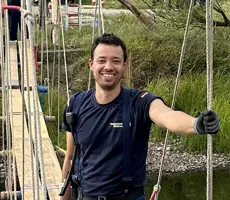
Erik Vanegas Muller
DPhil Student
Erik's DPhil research will test and analyse cardiac electrophysiological modelling with Physics Informed Neural Networks in youth athletes aged between 11 and 18. His work seeks to gain more insight into the spatiotemporal propagation of innervated action potentials to prevent arrhythmias, syncope, and, ultimately, sudden cardiac death. He graduated from the Technical University of Berlin with a Bachelor and Master of Science degree in Engineering Science, specialising in numerical methods, simulation, and control theory.

Shuai Mao
DPhil Student
Shuai is developing a sports injury prediction model based on soft robotics like artificial muscles. His research objective is to build a robot avatar to analyse and predict teenage sports injuries and provide professional suggestions. He holds an MRes degree in Mechanical Engineering from Shanghai Jiao Tong University, where he completed research on mechanical system data-driven modelling with AI. He also has a second MSc degree in Advanced Mechanical Engineering from Imperial College London, where he researched gait-based actuation of an exoskeleton with sensor feedback.
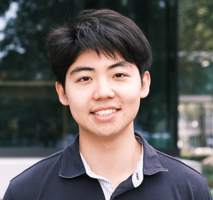
Lukas Cha
DPhil student
Lukas holds B.Sc. and M.Sc. degrees in Mechanical Engineering from the Technical University of Munich, specialising in mechatronics. Previously, he visited the Biomechatronics Lab at Imperial College London to develop control strategies for a lower-limb rehabilitative knee exoskeleton. Earlier, his Bachelor’s research focused on trajectory optimisation strategies for robotic manipulators. As a DPhil student at the Healthcare Biorobotics Lab and The Podium Institute for Sports Medicine and Technology, his research centres around the printing-based fabrication and development of wearable movement sensors, with a particular focus on soft, stretchable sensors that can be used in conjunction with biomechanical modelling for knee injury prevention during sports.

Konstantin Dzavaryan
DPhil student
Konstantin graduated with a BEng in Mechanical Engineering from University College London (UCL) and an MSc in Robotics and Autonomous Systems from the University of Bath. He then spent a year at the UCL Great Ormond Institute of Child Health working on computational models to predict outcomes in craniofacial surgery, as well as studying the morphology and material properties of cranial tissue. Research into head trauma often overlooks the significance of the upper-body and neck biomechanics due to the complexities involved in modelling the active muscular response of an anticipated impact. His research aims to develop Physical and Digital Twins to introduce active musculoskeletal dynamics to computational modelling of impacts in contact sports.
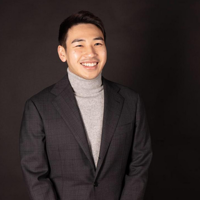
Michael Cheung
DPhil student
Michael Cheung holds a BEng in Computing from Imperial College London and dual MA/MSc degrees from the Royal College of Art and Dyson School of Engineering, Imperial College London. His research integrates AI, machine learning, robotics, and control theory to enhance human-technology interaction, focusing on elderly care and dementia rehabilitation. By combining clinical insights, soft robotics, and biomechanics with control systems, he creates adaptive, patient-centered predictive systems that improve care and compassion while making rehabilitation more responsive and accessible for patients and caregivers.

Mukun (Oscar) Tong
DPhil student
Mukun's research focuses on the application of computer vision and machine learning to hand function rehabilitation. He holds a BEng degree in automation from Tsinghua University and an MSc degree in machine learning from University College London. Currently as a DPhil student, he aims to develop a generative model to predict and generate hand poses with rehabilitation gloves to help accurately assess and monitor the recovery process for post-stroke patients.
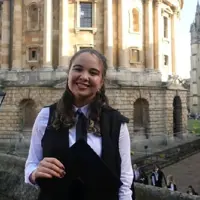
Natasha Kisseroudis
DPhil student
Natasha is a DPhil student on the Engineering Biology CDT program co-supervised by Professor Dame Molly Stevens. Her research focuses on the development of microrobotic systems for applications in Synbio. She holds a BsC (Hons) in Biotechnology from the University of Edinburgh and a MRes is Systems and Synthetic Biology from Imperial College London. Outside the lab she is committed to improving her public speaking skills through Toastmasters. In her spare time she enjoys dancing and documenting her PhD experience on her Youtube channel (Postgradopolis).

Yige Chen
DPhil student
Yige completed her undergraduate degree in BEng in Engineering Mathematics, where she developed a strong foundation in scientific computing, ML, and computational and mathematical modelling of real-world systems. For her final-year project, she investigated methods for inferring interaction rules in swarming systems using local measurements and developed algorithms to accurately estimate swarm interaction parameters. She is currently a doctoral student on the Engineering Biology Centre for Doctoral Training (CDT) — a collaborative programme between the University of Bristol and the University of Oxford — co-supervised by Professor Jonathan Rossiter (University of Bristol). Her research interests lie at the intersection of mathematical modelling, nonlinear dynamics, and robotic actuation, exploring emergent behaviours in programmable engineered living systems.

Ria Prakash
MSc in Research Student
Ria is a MSc in Research Engineering Science student at Kellogg College, specializing in electrical and biomedical engineering. She completed her undergraduate study with the University of Waterloo in Canada. She is currently working on investigating soft robotic haptics for motor learning. She has previously interned on projects ranging from developing on e-vehicle steering systems to wireless imaging capsule systems for detecting cancerous intestine inflammation.

Jiayu Tang
MSc in Research Student
Jiayu is an MSc by Research student in Engineering Science at St Edmund Hall. He completed his MEng degree in computing at Imperial College London. His research lies at robot learning (Reinforcement Learning and Imitation Learning). His previous work includes building distributed modern RL framework that support large-scale environments and enable efficient training of vision-language-action (VLA) models. He also investigates the integration of reinforcement learning with quality-diversity (QD) algorithms to facilitate unsupervised behavioural exploration and diverse skill discovery. More broadly, his interests extend to multimodal learning, particularly the fusion of visual and haptic sensing, to enhance robot perception and control.

Wenze Zhang
MSc in Research Student
Wenze graduated from the National University of Singapore with a degree in Computer Engineering, specialising in Robotics. His previous research includes the development of a non-invasive wearable diet monitoring device for children and a system for detecting and predicting freezing of gait in patients with Parkinson’s disease. Currently, as an MSc by Research student, his work focuses on developing soft prosthetics with sensitive feedback and continuous EMG-based control to provide a seamless user experience.
MEng Students

Thomas Toze
MEng student
Thomas is a fourth-year engineering student at St Hugh’s College. With HBL, his work focuses on the project ChainFlex: using morphing lattices for enhanced impact protection in sports PPE.

Sean Lincoln
MEng Student
Sean is a fourth-year engineering student at Lincoln College. With HBL, his work focuses on the development of HaptiSuit: Large-Area Wearable Haptic Gear for Enhanced VR Experiences.

David Robson
MEng Student
David is a fourth-year engineering student at St Hugh’s College. With HBL, He will be developing OxExo: A Soft Robotic Exoskeleton for Upper Limb Assistance.
Visiting scholars
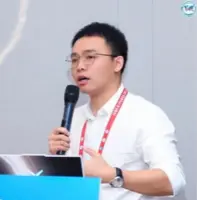
Chao Xu
Visiting researcher
Chao Xu is a Professor and Tang Aoqing Scholar at Jilin University. He earned his PhD in Mechanical Engineering from Polytechnique Montréal, Canada, in 2018, and conducted postdoctoral research at McGill University’s Department of Materials Engineering in 2019, specializing in metal additive manufacturing. His research focuses on 3D printing of bioinspired functional materials, with applications in artificial bone implants, soft robotics, and metamaterials. He is particularly interested in developing advanced additive manufacturing strategies for biomedical and robotic applications.

Tanguy Declety
Visiting Student
Tanguy is a visiting Master’s student in Robotics from École Polytechnique Fédérale de Lausanne (EPFL), currently completing his six-month master’s thesis at the Healthcare Biorobotics Lab. He obtained his Bachelor’s degree in Microengineering from EPFL and gained ten months of full-time industry experience at a Photonics Startup in Lausanne during his master’s studies. His research focuses on developing a haptic-integrated VR exergame for individuals with Spinal muscular atrophy (SMA). The goal is to create an engaging rehabilitation platform that provides intuitive haptic feedback and uses electromyography (EMG) sensors for user control.

Simona Gandah
Visiting PhD Student
Simona holds an M.Sc. in Bionics Engineering from Scuola Superiore Sant'Anna and Università di Pisa (2021), with a thesis on a novel capacitive-based catheter for urethral pressure profilometry under the supervision of Prof. Ciuti at the Healthcare Mechatronics Lab of The Biorobotics Institute. She is currently a third year Ph.D. in Biorobotics, with research focused on the development of novel mechatronic endoluminal devices for advanced diagnosis of motility disorders within the Device for High Resolution Manometry (DHRY) project, funded by MEDICA S.p.A. She has experience in software development for IoT applications and collaborative robotics as part of the EU H2020 ODIN project, which leverages AI-based technologies to transform healthcare delivery across leading European hospitals. Her research interest regard mainly soft sensing applied to minimal invasive medical devices and robotics.


